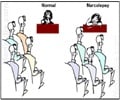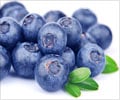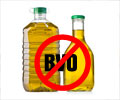Label Lingo of Food Products
Sarah and I are neighbors and we call ourselves “afternoon friends”. When our hubbies are busy in their offices and children are at schools, we usually meet up after finishing our daily chores for a cup of coffee or go out to do grocery in nearby stores. During one such outing in a departmental store, I noticed Sarah filling her cart with large packs of cheese slices, big bottles of mayonnaise, lots of colorful juices, and other canned stuff. Considering Sarah’s XXL size and her non-stop blabber to lose weight, I was aghast to see her indulgence in those sinfully high-on-calorie goodies. When I questioned her about this, she replied unabashed, "Oh, don't worry sweetheart! I always pick the "light", "fat free", and "sugar free" versions of these. They won’t make me any fatter".
This little incident made me realize the importance of understanding the label lingo of food items. Indeed, it is very important to take the ood labels very seriously and learn to interpret the hidden meanings written on food products.

Some ingredient terms are very tactfully modified and “glorified” to hide their existence in the food item. If you are looking for some pure, unadulterated, fresh, and HEALTHY food product then it is better to avoid food items which read as:
- “Fortified”, “added”, “enriched”, “extra”, and “plus” usually means that the food has been processed or altered in some way.
- “Enriched flour”, “wheat flour”, or “unbleached wheat flour”, politely refer to refined flour with very little amount of whole wheat added to it.
- “Partially hydrogenated oil” or “hydrogenated oil” is a code word for trans fats. (Trans fats are synthetically manufactured, unnatural fats. They are not considered very healthy for consumption).
- “Nitrates” are used to preserve meat products and they have been linked to creating a cancer causing chemical in the body which is found especially in bacon and luncheon meat.
- “Lard shortening” is animal fat. Pure and simple.
- Monosodium glutamate (MSG) is a form of sodium. Preferably, avoid it! Other words that scream “high sodium” are disodium phosphate, onion salt, garlic salt, sodium alginate, sodium caseinate, sodium nitrate, sodium benzoate, sodium hydroxide, sodium propionate, sodium pectinate, sodium sulfite, baking soda, baking powder, and soy sauce.
Sometimes fat, sugar, and sodium in the food item is disguised under a fancy name or in forms other than their usual ones.
Think “SUGAR” when you read:
- Honey
- Sucrose
- Malt
- Fructose
- Dextrose
- Molasses
- Fruit Juice Concentrate
- Glucose Syrup
- Corn Syrup
- Golden Syrup Advertisement
Think "FAT" when you read:
- Butter
- Margarine
- Lard
- Shortening
- Vegetable Oil
- Full-cream milk powder
- Mono-, di-, or triglycerides
Think "SALT" when you read:
- Sodium chloride
- Yeast extract
- Soy sauce
- MSG
Since it is very difficult and practically not possible to understand anything and everything that is mentioned on a food label, avoid (if you can) products which have a long list of artificial and difficult sounding ingredients. Try to stick with food items which are made from “whole foods” (like whole grains), with little or no preservatives/coloring, and definitely no trans fats. And most importantly look for the manufacture date or the ‘best before’ date in the product you are buying.














